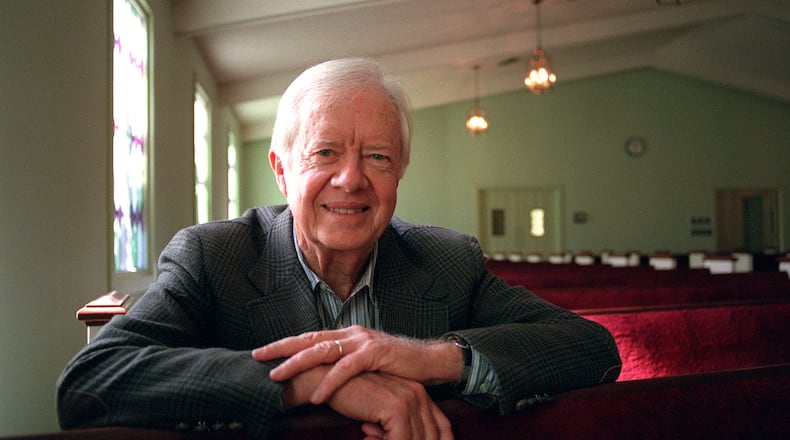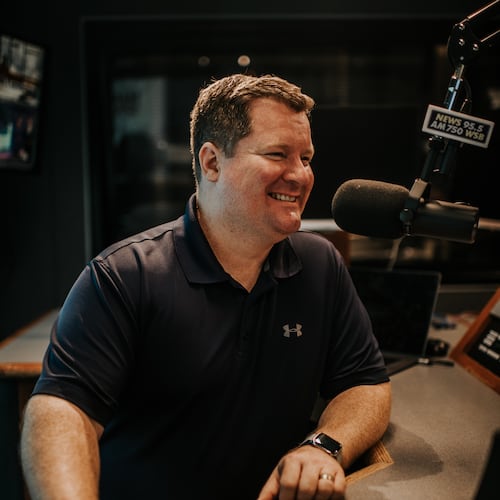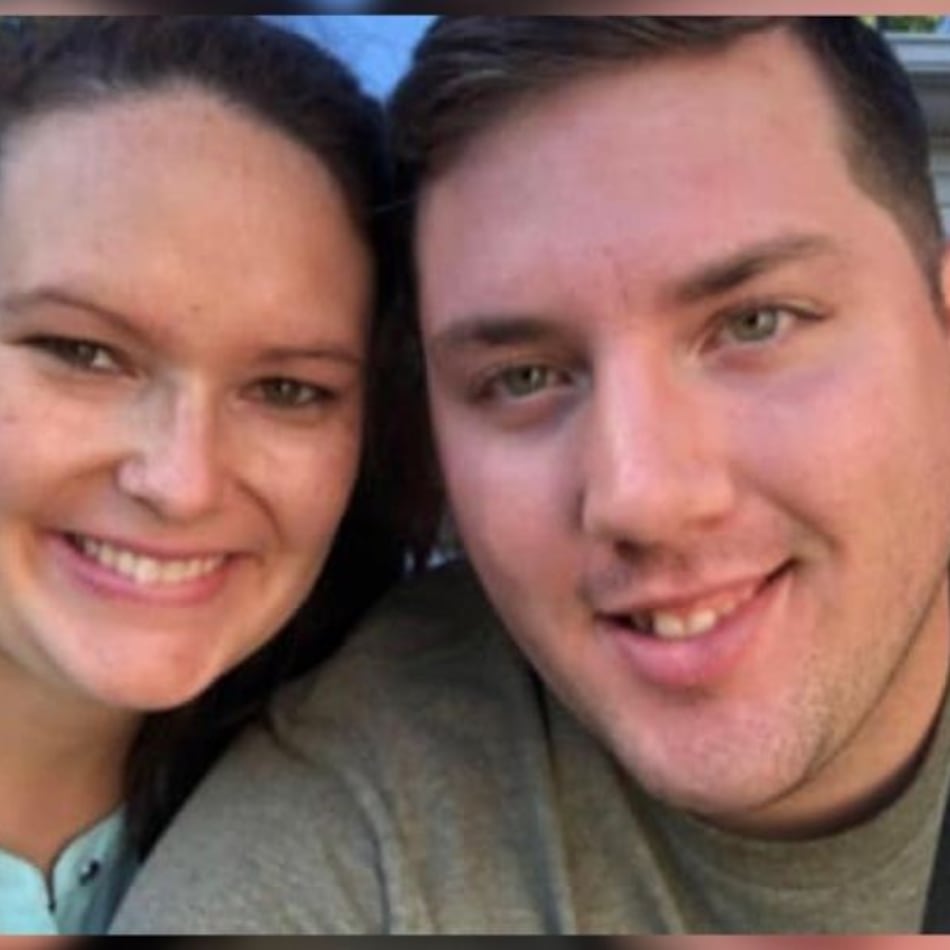The Atlanta Journal-Constitution’s popular “Politically Georgia” podcast earned accolades from the 2025 Signal Awards across the Local News and individual episodes categories this past week. The podcast was recognized with a Gold award in the Local News category and a Silver award in the individual episode category under the History genre for its special episode on the life and legacy of former President Jimmy Carter.
We caught up with the production team behind the podcast, executive producer Shane Backler and producer Natalie Mendenhall, about putting the episode together. This Q&A has been edited for clarity.
Congratulations to the Politically Georgia team on its Signal Awards wins. What was your initial vision for the Carter episode, and how did it evolve during production?
Natalie Mendenhall: Our executive producer, Shane Backler, really gave me the charge to find the Georgia angle to this special, which narrowed the focus for me on such an incredible figure. Shane and I have a great collaboration process.
Shane Backler: It was crucial for the podcast team to be prepared for Jimmy Carter’s passing. We had to have something together and on the shelf for the podcast and the radio show when the news broke. We knew national outlets would focus on Carter’s presidency and his work through the Carter Center. Our plan was to tell Carter’s story as Georgia’s story: from peanut farmer to Georgia state senator and governor, to the White House, the Carter Center. We also wanted to focus on the Georgians who were with him and were impacted by him along the way.
Natalie, you conducted over a dozen interviews at Carter’s 100th birthday celebration. What was that like and how did you choose which voices to feature?
Natalie: The process took over a month. I started when I attended the Carter 100th birthday celebration at Fox Theatre in September 2024.
I interviewed Dr. Bernice King, Atlanta Mayor Andre Dickens and Ambassador Andrew Young as well as Carter’s grandchildren, Jason and Josh. We ran some of that audio on the radio show that week, but I knew we were just scratching the surface.
A month later, I traveled to Plains, Georgia, with Greg Bluestein and Patricia Murphy for the official 100th birthday celebration. I was able to fill in the gaps for this episode by interviewing the people of Plains, Carter’s niece, naval officers and others.
I dipped off to visit the national historical site of Plains High School. When I sat in the classroom that both Jimmy and Rosalynn Carter attended, I started to see the full picture of the Carters’ legacy from their humble beginnings to the White House and their incredible third act.
After that visit, the team and I filled in remaining gaps by interviewing people who served in Carter’s administration, The Carer Center and the National Archives. From there, I started putting together the script.
The podcast episode focused on Carter’s Georgia roots rather than his presidency. Why was that local lens important to you and the team?
Shane: For “Politically Georgia” content, I always ask, “What’s this got to do with Georgia?” We can all read history books to learn about his presidency. But where are the stories about his time before and after the White House as a Georgian? We wanted this episode to be full of stories that people haven’t heard before and probably won’t find anywhere else.
You gathered stories from a wide range of Georgians, from Carter’s grandchildren to members of the Peanut Brigade. How did you think about including all of these different perspectives as a cohesive narrative?
Natalie: Once I gathered all the sound, I really tried to sit with how to tell the story. Because we were dealing with a century of history, I went chronologically. I started in the Plains School House, but I ended with personal stories of the Carters’ closest family and allies.
What were some of the biggest challenges in producing this episode, especially given the emotional weight of Carter’s legacy?
Natalie: How do you fit more than a century of service into just 60 minutes? The Carters have such a global legacy that spans many decades.
Shane: The biggest challenge was keeping a close eye (ear) on the tone. We lost a great Georgian and great American. It was important to be respectful of that loss and also have a sense of celebration of a life well lived and a legacy that endures. Emotions when someone passes range from tears to laughter and back to tears again. That’s what humans do. That’s what I wanted this episode to do.
What’s a moment or quote from the interviews that really stuck with you or shaped the tone of the episode?
Natalie: Jimmy Carter’s longtime aide, Dot Padgett, provided such personal insight for this episode. We ended this special with a montage of voices – her quote is at the end:
“There's so many visions I have of him, and it's not his last few days, but I see him walking those streets and shaking hands with people and asking people to vote for him. That's a vision I see of him."
Natalie: If I’m blessed to have a long life, I hope that’s how I’m remembered, as vibrant and warm.
How did collaboration with the Politically Georgia team including Greg Bluestein, Patricia Murphy, Tia Mitchell and Bill Nigut enhance the storytelling?
Natalie: Working with my fierce foursome was an intricate creative process. I tried to carve out a role for each person when writing this special.
Greg steered the big picture outline of the show, as he often does through his enterprise reporting. Bill was our in-house historian as he covered Carter’s presidency and post- White House legacy. Tia, our Washington bureau chief, provided insight into how differently the Carters pursued the presidency and bucked traditional norms. Patricia was a key editorial voice as she has written many columns about the Carters, particularly First Lady Rosalyn Carter.
Shane: The AJC team has such a rich history of reporting on the Carters and those who knew them. The team was able to share contacts and insights to focus on the right approach with each interview subject.
Any advice for other producers aiming to tell deeply local stories with national resonance?
Natalie: Try to take it one day and one sound bite at a time.
Shane: You can never go wrong with the human elements of a story. From, in this case, humble beginnings, challenges, and then the outcomes. You look for the lessons learned and the takeaways people in these stories have and share them with the audience. Give your audience a story and something to walk away with.
The AJC Press Room is maintained by the AJC’s communications team and gives readers a behind-the-scenes look at our people, products and programming. Follow us on Instagram and X for more updates about the AJC.
For more information and media inquiries, reach us at press@ajc.com.
About the Author
Keep Reading
The Latest
Featured




